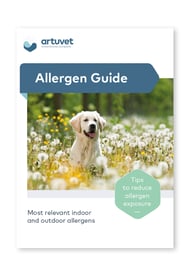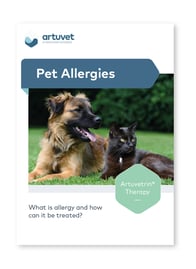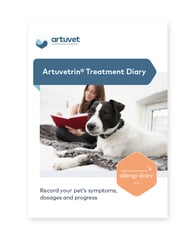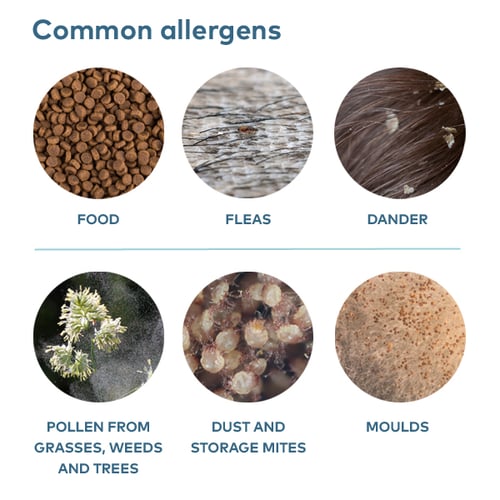Find out if your pet suffers from allergies
Could my pet be allergic?
All pets scratch, lick, bite, and rub. However, it should never interrupt activities such as playing or eating, cause hair loss, skin damage or be often enough that it causes discomfort for your pet and for you. Frequent or constant scratching, licking, biting, scooting, and/or rubbing are most often signs of an allergic skin disease. If your pet shows signs of allergy it is important to seek treatment as soon as possible. If left untreated it can become more serious and lead to complications, such as skin and ear infections, thickened, red and/or darkened skin, hair loss, odour and even intestinal problems, like vomiting and diarrhoea. It’s important to talk to your vet about getting effective, lasting treatment.
Did you know?
1 out of 5 pets are allergic and itching is the number one reason for veterinary visits, yet many pets continue to suffer because symptoms can be associated with common behavior and pet owners unfortunately are not aware of severity of the problem.
How to recognise allergy?
Does your pet show any of these signs?
It could be allergy!
What to do if it is allergy?
Not all itchy skin, scratching or ear problems are due to allergies. There are other diseases that can cause similar signs. For that reason your vet will start by excluding all other potential causes, such as fleas, scabies, infections, etc. If the allergy symptoms remain after excluding or treating other causes, the next step is to exclude the possibility of food allergy and identify which allergens may be causing the allergy, through a simple and quick blood test.
This is a fundamental step, without knowing which allergens are causing the problem it is not possible to avoid them where you can and treat your pet.
Read more
How to treat allergy?
If your pet has a skin-related allergy, the only long-term treatment that can address the root cause of your pet’s allergy is Immunotherapy (also called allergen-specific immunotherapy). Immunotherapy is a custom-made, safe and an effective treatment for your pet that will stop its symptoms from affecting its health, comfort and quality of life.
Read more
Supporting resources
![]()
Keep track of your pets symptoms
- What signs do you see?
- Do the signs happen often?
- Is there a seasonal pattern?
- Which part of the body is more itchy?
- How long does it last?
- Does it happen when your pet goes outdoors?

Allergen guide
- Information about common allergens: grasses, trees, weeds, mites, insects and moulds.
- Time of year that they are more relevant
- Tips to reduce your pets exposure

Allergy information
- What is allergy?
- Predisposed breeds
- What to do if your pet is allergic to food?
- What to do if your pet is allergic to environmental allergens?
- How to treat allergies?
- What else can be done to help your pet?

Treatment diary
- Record your pet’s symptoms
- Record your pet's dosages
- See the progress of your pet

IF YOUR PET HAS ALLERGY SYMPTOMS YOUR VET CAN HELP
Key facts to remember:
- Allergy is a very common disease in dogs and cats
- Be aware of any sign that might be indicative to allergy. Most of these signs can be considered normal behaviour so request an allergy check up with your vet
- It is important to identify which allergens are the source of the allergy so they can be avoided and your pet can be treated
- The first choice for treating allergy is immunotherapy, a custom-made, all-natural treatment which is safe, effective and gives long-lasting itchy relief





